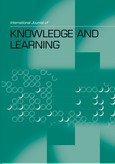
Call for Paper
Knowledge Management and e-Human Resources Practices for Innovation
International Journal of Knowledge and Learning (IJKL)

IMPORTANT DATES
* Abstract: 10-04-2011
* Submission: 30-04-2011
* Notification: 30-05-2011
* Final Version: 15-06-2011
It is widely recognized that knowledge management (KM) can provide an organization with the capability to understand customers' needs, effectively extract new ideas from suppliers and customers alike, and turn them into innovative products and services. Human resource management (HRM) plays an equal, if not more important, role in building and sharing the right set of employee competencies that help organizations to successfully compete. In many organizations, HR executives and KM experts have found that developing an IT infrastructure that allows the free exchange of employee experience and expertise has increased the company's competitiveness. Many companies are now aware that timely capturing their employees� collec-tive knowledge is the only way to preserve their investments in human capital. As a result, some of them have invested to develop a corporate culture of sharing knowledge and experience, capable of convincing employees to share their expertise.
However, how to enable synergy between KM and HRM to foster open innovation is still a relatively new is-sue. Traditionally, innovation has been seen as the responsibility of a R&D team or of a business unit. Re-cent experience has shown that innovation is largely dependent on creative individuals working in an envi-ronment that spans multiple organizations and includes, beyond regular employees, consultants and suppli-ers. Knowledge-supported HR can play a key role in attracting and keeping the most innovative people and partners, creating a culture that supports innovation.
This objective of this special issue is twofold. The first goal is to provide a forum to discuss theoretical mod-els and practical evidence on the effectiveness of knowledge-supported human resource (HR) management. The second goal is to investigate the connection between the implementation of knowledge-supported HR and the degree of open and employee-driven innovation achieved by organizations.
Subject Coverage:
- Tools and techniques or knowledge-supported HR
- Empirical evidence of HR and KM complementarity
- Competencies analysis and profile mapping
- Capturing and sharing employees knowledge
- IT support for knowledge-supported HR
- Competence ontologies
- Interoperability of HR and KM systems
- Roadmaps
- IT support for fostering creativity
- HR and KM practices for fostering innovation
- Support for creativity and serendipity
- Rewarding and profiling innovation
GUEST EDITORS
Gianluca Elia, University of Salento, Italy
Mustafa Jarrar, Birzeit University, Palestine
Notes for Prospective Authors
Submitted papers should not have been previously published nor be currently under consideration for publication elsewhere All papers are refereed through a peer review process. A guide for authors, sample copies and other relevant information for submitting papers are available on the Author Guidelines page.
Editors and Notes
All papers must be submitted online. To submit a paper, please go to Online Submissions of Papers
If you experience any problems submitting your paper online, please contact [email protected], describing the exact problem you experience. (Please include in your email the title of the Special Issue, the title of the Journal and the name of the Guest Editor) .